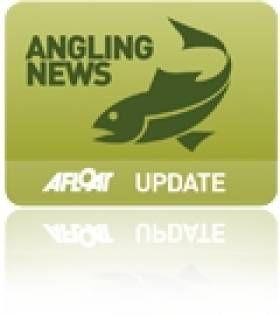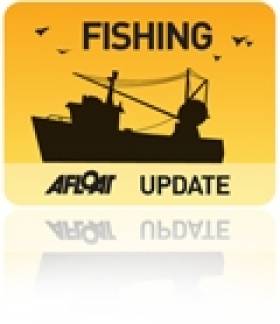Displaying items by tag: Common Skate
'It Was This Big!' Angler Breaks Skate Record - But Doesn't Make The Books
#Angling - Billy Wallace reeled in a record-smashing catch recently in the form of a 225lb common skate - but sadly won't see his name in the record books, as the Angling Times reports.
The sea angler was fishing in Donegal Bay off Sligo on Declan Kilgannon's Kiwi Girl when he landed the whopper, estimated to be 4lb heavier than the Irish record set more than 100 years ago.
However, because he released the fish back into the sea immediately after, Wallace's catch cannot be made official.
But at least he has a photo to show for it, meaning his story is anything but fishy!
Giant Bluefin Tuna Caught Off Kerry, Cork Coasts
#FISHING - Dingle fishermen trawling for tuna off the south-west coast of Ireland found a big surprise in their nets this week in the form of an enormous 2-metre-long bluefin.
As The Irish Times reports, the Atlantic bluefin is considered one of the big game fish and is highly sought-after for top-quality sushi, a demand that has led to its adding to the endangered species list.
Strict quotas have been placed on bluefin for fishermen who normally trawl for albacore tuna - but the Dingle boats Fiona K and the Atlantic Venture were lucky that their unexpected catch was within the 1% they are allowed each year.
The 140kg tuna is set to end up in shops and restaurants in Dingle and throughout Kerry for much less than one would pay for such fish in Japan, where a bluefin double the size went for over €600,000 earlier this year.
Meanwhile, an even bigger bluefin was snappped up by eager fish lovers at Limerick's Milk Market last weekend.
The 250kg goliath was caught 600 miles off Castletownbere in Co Cork by local fisherman JD Sullivan, according to the Limerick Leader.
“The tuna migrate up the west coast of Ireland around this time of year, but very few of them are caught,” said Paul Cusack of Rene Cusack’s fish shop in the market.
It's leading some to question if there's something in the water, with news from Angling Times of a giant 189lb common skate recently caught off the coast of Northern Ireland.






























































